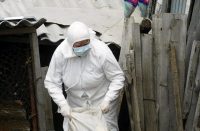QUEZON CITY, July 17 – To ensure that only legitimate claims for asthma cases will be paid for, the Philippine Health Insurance Corporation (PhilHealth) recently released new policy statements on the diagnosis and management of asthma in adults.
The policy statements, which are in compliance with the Clinical Practice Guidelines (CPG), will be used as PhilHealth’s reference in ensuring quality of care for all its members. The release of the statements is also among the key strategies in the implementation of quality assurance standards.
Based on the 2009 Philippine Consensus on Asthma Diagnosis and Management formulated by the Philippine Council on Asthma of the Philippine College of Chest Physicians, the policy statements will provide guidance to doctors, health care institutions, and patients as to what tests, medicines, and procedures are strongly recommended if benefits clearly outweigh the harms.
“Minabuti naming magpalabas ng pahayag na ito sa pamamagitan ng PhilHealth Circular No. 2016-0004, upang matiyak na de-kalidad na serbisyo lamang ang maipagkakaloob sa ating mga miyembro. Ito rin ang magsisilbing gabay upang matiyak na tamang claims lamang ng asthma ang babayaran ng Korporasyon,” said Alexander A. Padilla, PhilHealth President and CEO.
According to the policy statements, patients with status asthmaticus and those who do not respond to treatment of acute asthmatic attacks in the emergency room should be admitted. Long-term treatment of asthma can also be started while the patient is still admitted in the hospital. However, those with stable vital signs for 24 hours and have the ability to maintain oral intake may be discharged.
In diagnosing asthma, medical practitioners should seek symptoms such as on-and-off cough that gets worse at night or in the early morning; wheezing; episodic breathlessness; chest tightness; symptoms that are triggered by exercise; allergen or irritant exposure; change in weather; or viral respiratory infections. These must be reflected in the patient’s history.
On the other hand, Spirometry and Peak Expiratory Flow (PEF) are the two (2) acceptable methods in the diagnosis of asthma as they provide objective measures.
The policy statements on the diagnosis and management of asthma took effect on June 03 this year.
Earlier researches have shown that asthma remains to be a major cause of chronic morbidity and mortality in the Philippines and is one of the top illnesses for which claims reimbursements with PhilHealth are made. From January-December 2015, PhilHealth paid P 1,100,741,490.00 for a total of 131,023 claims for asthma. This figure represents a 27 percent increase compared to the same period in 2014.
“Nais naming siguruhin sa aming mga miyembro na kami ay palaging handang umalalay sa kanilang pangangailangang pangkalusugan dahil batid namin ang hirap ng pagpapaospital sa panahong ito. Hindi man lubos na mababayaran ng PhilHealth ang lahat ng gastusin sa ospital, naniniwala kaming kahit papaano’y maiibsan naman ang pangamba at alalahanin ng ating mga miyembro,” added Padilla. (PhilHealth)







